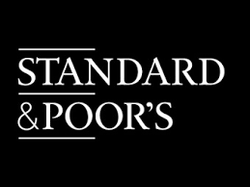
Jan. 16, 2015
Breaking news

One can only be amazed or even upset.
First, the agreement is not yet concluded. It would be in a month or two. How is it that we already know? Secondly, contracts, because the transaction is a contract listed by the Civil Code, are not intended to be public. How is it that we already know everything? The person who gave the information "was keen to remain anonymous." It would have suspected ......
Third, it is true that the regulation of rating agencies is a big issue. Special texts have been taken but academics think the right tools stay missing and that is probably the liability, general legal instrument, which is the most appropriate.
But the responsibility of commitment requires a trial, evidence, respect for the rights of defense, due processs, legality of offenses and penalties.. Here, $ 1 billion is paid by the company only to avoid that opens a lawsuit against it. The allegation is the rating agency would have underestimated the subprime risk.
But on one hand everyone says that the rating agency has actually done the facts allegued since payroll so that the file doesn't open. On the other hand, and from the perspective of regulating the information that would be out of the trial, a trial being a form of crisis, will not come out.
So this sort of industry fof "Deals of Justice", apart from the fact that some describe the phenomenon as a "racket", isn't a "decriminalization" of regulation for a "civilized regulation" through the transaction contract. On the contrary, this movement that is spreading constitutes an increased repression whic diminishes rights of defense for the operator and information for the sector.
One can only be amazed or even upset.

Dec. 22, 2014
Breaking news

In regulating more than anywhere else, the most important is the time.
Operators can't endure uncertainty. The uncertainty of the litigation is probably the worst weapons that the controller can turn against them. So much so that The Economist, in its issue of August 30, 2014 estimated that US regulators have transformed the repression organized racket, operators to pay for stop procedures, the fact that they are right or wrong is no longer the issue.
Seen in banking and finance, seen here in telecommunications.
Then, a first calculation of the prejudice of consumers has been calculated. Each subscriber aspiring to claim a possibly unwarranted addition of about $ 10 a month for many years, the amount of damages was very high , for example in connection with a class action.
The company chose to stop there and have a settelment for $ 90 million, attributable in part to consumers, but also to different states, also paying a transactional fine to the US federal treasury.
The case is therefore financially resolved. The Federal Communications Commission commented on the agreement stating that overcharging is "a major problem" for consumers.
The case has been conducted for this operator as it has been for AT & T in October 2014, concluding a similar agreement for $ 105 millions.
____
One will rejoice if one believes that the key is to close the file and enable the company to return to its business.
The reference may be regrettable if we think:
- Punishment must remain a matter for the courts;
- The accused persons, even if they are companies, need time for the defense ;
- Regulatory Law must issue rules and interpretations of the texts, the law is depleting by agreements that close the litigation, the main objective being ... never reach the judge.
